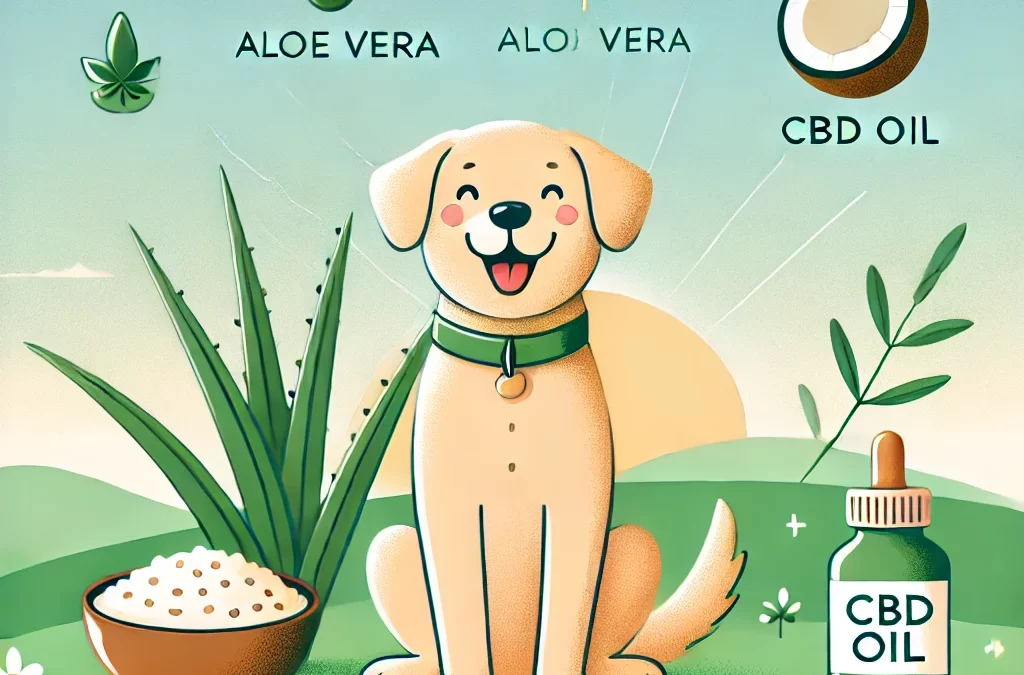
da TCMVET | 28 ottobre 2024 | Alimentazione e salute
Le proteine sono uno dei nutrienti più essenziali nella dieta del tuo cane. Ogni cellula del corpo del tuo cane contiene proteine, che sono fondamentali per costruire e mantenere pelle, peli, muscoli, organi e vari tessuti. Una dieta ricca di proteine di qualità aiuta i cani a crescere forti e a rimanere sani per tutta la vita.
Perché le proteine sono essenziali per i cani
- Costruzione e riparazione delle cellule – Le proteine agiscono come elemento fondamentale per la crescita e la riparazione delle cellule. Che un cane sia giovane, in crescita o in fase di recupero da un infortunio, le proteine aiutano a riparare le cellule danneggiate e a generarne di nuove, mantenendo il corpo resiliente.
- Sostenere la forza muscolare – Le proteine sono essenziali per lo sviluppo e il mantenimento dei muscoli. Muscoli forti sono fondamentali per la mobilità generale, la resistenza e persino la salute delle articolazioni, poiché supportano il corpo del tuo cane durante le attività quotidiane.
- Essenziale per la crescita e la gravidanza – Per i cuccioli e le cagne in gravidanza, l'assunzione di proteine è particolarmente importante. Supporta una crescita e uno sviluppo rapidi, assicurando che i cuccioli abbiano i nutrienti di cui hanno bisogno per ossa, muscoli e organi forti man mano che crescono.
Scegliere fonti proteiche di alta qualità
Quando si seleziona il cibo per cani, è importante leggere l'etichetta per assicurarsi che le proteine siano uno dei primi ingredienti elencati. Ingredienti come pollo, manzo, agnello e pesce sono fonti eccellenti di proteine di alta qualità che forniscono gli amminoacidi necessari per la salute del tuo cane. Gli alimenti con "farina di carne" o "sottoprodotti" potrebbero essere di qualità inferiore; pertanto, opta per marchi che elencano la vera carne come ingrediente principale.
Di quante proteine ha bisogno il tuo cane?
Il fabbisogno proteico ideale varia in base all'età, alla taglia e al livello di attività. Ad esempio, i cani molto attivi o quelli coinvolti nell'addestramento all'agilità potrebbero richiedere un apporto proteico maggiore per supportare la riparazione muscolare e le esigenze energetiche. Anche i cuccioli, a causa delle loro esigenze di crescita, e i cani anziani, che hanno bisogno di supporto per mantenere la massa muscolare, traggono beneficio da livelli proteici bilanciati. Consultare il veterinario può aiutare a determinare la giusta quantità di proteine per le esigenze specifiche del tuo cane.
Benefici di una dieta ricca di proteine per i cani
Una dieta ricca di proteine di qualità offre numerosi benefici per la salute dei cani, tra cui:
- Muscoli forti e magri – Le proteine aiutano a mantenere la massa muscolare magra, supportando la forza e la mobilità complessive.
- Pelle e pelo sani – Le proteine favoriscono la salute della pelle e la lucentezza del pelo, mantenendolo liscio e forte.
- Migliore funzione immunitaria – Un apporto proteico adeguato rafforza il sistema immunitario del cane, aiutandolo a difendersi più efficacemente da infezioni e malattie.
- Livelli di energia ottimali – Le proteine forniscono l’energia necessaria ai cani attivi, consentendo loro di rimanere giocosi ed energici.
Assicurare al tuo cane una dieta ricca di proteine è fondamentale per la sua salute e il suo benessere. Dalla costruzione di muscoli forti al supporto di un pelo lucido e all'aumento di energia, le proteine svolgono un ruolo cruciale nella vita del tuo cane. Cerca fonti di proteine di alta qualità sulle etichette degli alimenti e considera le esigenze uniche del tuo cane per aiutarlo a prosperare.

da TCMVET | 28 ottobre 2024 | Alimentazione e salute
Un pelo lucido e ben curato è spesso il primo indicatore della salute generale di un cane. Per i proprietari di animali domestici, non è solo esteticamente gradevole, ma anche un segno che la dieta del loro cane fornisce i nutrienti essenziali necessari per una salute ottimale della pelle e del pelo. Tra questi nutrienti, fondamentali sono gli acidi grassi omega-3 e omega-6, che aiutano a mantenere un pelo forte e lucido e una pelle sana.
Acidi grassi Omega e il loro ruolo nella salute del cane
- Acidi grassi Omega-6 – Gli Omega-6 sono essenziali per i cani, poiché supportano la sana funzionalità cellulare, l'idratazione e la resilienza contro i fattori esterni. Svolgono un ruolo significativo nell'idratazione della pelle, che si traduce in una minore secchezza e desquamazione. Senza un adeguato apporto di Omega-6, la pelle di un cane può diventare secca e soggetta a irritazioni, con conseguente pelo opaco e fragile, incline alla rottura.
- Acidi grassi Omega-3 – Gli Omega-3 forniscono proprietà antinfiammatorie che sono particolarmente benefiche per i cani con pelle sensibile o inclini alle allergie. Questi acidi grassi aiutano a ridurre prurito, rossore e irritazione calmando l'infiammazione della pelle. Gli Omega-3 sono particolarmente utili durante i mesi invernali quando bassi livelli di umidità possono contribuire a pelle secca e disagio.
Benefici degli acidi grassi Omega bilanciati per i cani
Se inclusi in proporzioni equilibrate, gli acidi grassi omega-3 e omega-6 contribuiscono a:
- Un cappotto lucente – Gli acidi grassi Omega aiutano a mantenere la pelle nutrita, riducendo la secchezza e assicurando che il pelo cresca con una sana lucentezza. Ciò si traduce in un mantello liscio, lucido e meno incline a perdere eccessivamente pelo.
- Riduzione dell'infiammazione e del prurito – I cani con allergie o pelle sensibile traggono beneficio dagli effetti antinfiammatori degli omega-3, che aiutano a ridurre sintomi comuni come prurito, rossore e irritazione.
- Capelli più forti e caduta ridotta – Una pelle sana e idratata favorisce una forte crescita del pelo, rendendo il mantello meno incline a rotture e caduta. Un apporto bilanciato di acidi grassi assicura che il pelo rimanga ancorato e vibrante.
Fonti naturali di acidi grassi omega per cani
Molti alimenti per cani di alta qualità includono acidi grassi omega nelle loro formule, ricavati da ingredienti come olio di pesce, semi di lino e grasso di pollo. Questi ingredienti forniscono un modo naturale per supportare la salute della pelle e del pelo senza additivi artificiali. Inoltre, integratori come olio di pesce o olio di salmone possono essere aggiunti alla dieta del tuo cane per aumentare l'assunzione di omega-3, specialmente per i cani con specifiche condizioni della pelle.
Come scegliere gli alimenti ricchi di Omega
Quando selezioni cibo o integratori per cani, cerca prodotti che elencano acidi grassi omega-3 e omega-6 sull'etichetta. È essenziale scegliere marchi che utilizzano fonti naturali, poiché sono meglio assorbiti e più efficaci nel promuovere la salute generale della pelle e del pelo. Consultare il veterinario può anche aiutare a garantire il giusto equilibrio di acidi grassi, soprattutto se il tuo cane ha problemi cutanei specifici.
La salute del pelo di un cane non è solo una questione di pelle. Includendo un corretto equilibrio di acidi grassi omega-3 e omega-6 nella dieta del tuo cane, puoi supportare una pelle sana, ridurre l'infiammazione e promuovere un pelo lucido e bello. Fornire questa base nutrizionale aiuta a far sì che il tuo cane appaia e si senta al meglio tutto l'anno.

da TCMVET | 28 ottobre 2024 | Alimentazione e salute
Assicurare al tuo cane una dieta bilanciata è fondamentale per mantenere la sua salute, energia e felicità. I cani, come gli esseri umani, fanno affidamento su una serie di nutrienti essenziali, come proteine, carboidrati, grassi, vitamine, minerali e acqua. Ognuno di questi nutrienti svolge un ruolo specifico, dall'approvvigionamento energetico alla prevenzione delle malattie. Comprendendo queste esigenze nutrizionali, i proprietari di animali domestici possono fare scelte consapevoli per il benessere dei loro animali.
Le esigenze nutrizionali variano in base all'età e alla salute
Proprio come gli esseri umani hanno esigenze alimentari diverse nel corso della vita, così anche i cani. I cuccioli, ad esempio, hanno bisogno di più proteine per alimentare la loro crescita, mentre i cani adulti hanno bisogno di un equilibrio stabile di tutti i nutrienti per mantenere salute ed energia. Sono disponibili anche diete appositamente formulate per cani anziani, che si concentrano su una digestione più facile e sul supporto delle articolazioni. Inoltre, alcuni alimenti per cani affrontano problemi di salute specifici, come sensibilità della pelle, problemi digestivi o allergie.
Nutrienti essenziali e i loro benefici per i cani
- Proteine – Le proteine sono vitali per la crescita muscolare, la riparazione dei tessuti e il supporto immunitario. I cani attivi traggono grandi benefici dalle proteine, poiché aiutano nel mantenimento muscolare e nell'energia.
- Grassi – I grassi sono una fonte di energia concentrata, che supporta la salute del cervello, la pelle e un pelo lucido. Gli acidi grassi essenziali come Omega-3 e Omega-6 sono noti per ridurre l'infiammazione, supportare la salute delle articolazioni e migliorare il sistema immunitario.
- Carboidrati – I carboidrati forniscono energia per le attività quotidiane, specialmente per i cani energici. Le fibre dei carboidrati promuovono anche la salute digestiva, prevenendo problemi comuni come stitichezza o gonfiore.
- Vitamine e minerali – Vitamine e minerali essenziali, come calcio e vitamina E, supportano la resistenza delle ossa, la protezione delle cellule e la funzionalità muscolare e nervosa. Questi nutrienti sono necessari in piccole quantità, ma sono parte integrante del benessere generale del tuo cane.
- Acqua – L'acqua è spesso il nutriente più trascurato, ma è fondamentale per il mantenimento delle funzioni corporee. Un cane ben idratato avrà una migliore digestione, circolazione e regolazione della temperatura.
Scegliere un cibo per cani adatto alle esigenze del tuo animale domestico
Selezionare il cibo giusto significa considerare l'età, la taglia, il livello di attività e le condizioni di salute del tuo cane. Leggere le etichette degli ingredienti e scegliere prodotti con ingredienti di alta qualità, come carne vera e fonti naturali di vitamine, aiuta a fornire un'alimentazione ottimale. Se il tuo cane ha esigenze particolari, consulta un veterinario per trovare una dieta che supporti i suoi obiettivi di salute unici.
Suggerimenti per mantenere una dieta equilibrata
Mantenere una dieta bilanciata implica anche evitare di sovralimentare o di dare troppi dolcetti, poiché possono portare ad aumento di peso e squilibri nutrizionali. I controlli veterinari regolari sono importanti per adattare la dieta man mano che le esigenze del tuo cane cambiano, soprattutto quando invecchia.
Una dieta bilanciata e ricca di nutrienti è la pietra angolare della buona salute e della longevità dei cani. Dall'energia essenziale fornita da proteine e grassi al potere anti-malattia di vitamine e minerali, ogni nutriente contribuisce al benessere del tuo cane. Scegliendo una dieta che si allinea alle esigenze specifiche del tuo animale domestico, puoi aiutarlo a condurre una vita vibrante e sana.

da TCMVET | 25 ottobre 2024 | Alimentazione e salute
Quando un cane ha a che fare con un tumore, le sue richieste energetiche aumentano in modo significativo, rendendo essenziali gli aggiustamenti dietetici per la sua salute. Una dieta attentamente pianificata può supportare la funzione immunitaria del tuo cane, mantenere la massa muscolare e mantenere i livelli di energia equilibrati. Ecco alcune linee guida dietetiche che possono essere utili ai cani con tumori.
1. Elevata densità nutrizionale
I cani con tumori spesso sperimentano un consumo energetico più elevato del solito a causa degli sforzi del corpo per combattere le cellule cancerose. Ciò richiede una dieta ricca di cibi densi di nutrienti e facilmente digeribili. La densità nutrizionale assicura che il tuo cane riceva vitamine, minerali ed energia essenziali senza sovraccaricare il suo sistema con calorie vuote. I cibi densi di nutrienti sono essenziali in quanto forniscono l'energia e i nutrienti necessari in porzioni più piccole e gestibili.
Cibi consigliati: Carni magre, uova, frattaglie (come il fegato) e verdure verdi.
2. Evitare carboidrati ad alto contenuto
Poiché le cellule tumorali usano principalmente il glucosio per produrre energia, è fondamentale ridurre l'assunzione di carboidrati. I carboidrati si convertono in glucosio nel corpo, che alimenta la crescita del tumore. Limitando i carboidrati, puoi potenzialmente rallentare la crescita delle cellule tumorali e ridurre l'apporto energetico da cui dipendono le cellule tumorali.
Sostituzioni consigliate: Invece di cibi ricchi di carboidrati come cereali e verdure amidacee, opta per verdure a foglia verde, proteine magre e grassi sani.
3. Aumentare grassi e proteine di qualità
Grassi e proteine sono componenti cruciali di una dieta per cani amica del cancro. I grassi sani, come quelli presenti nell'olio di pesce e nell'olio di cocco, forniscono energia sostenuta e supportano la funzione immunitaria. Nel frattempo, le proteine di alta qualità sono essenziali per mantenere la massa muscolare e il peso corporeo, che possono deteriorarsi rapidamente nei cani con tumori. Le proteine aiutano anche il corpo a riparare i tessuti e a produrre ormoni essenziali per la salute immunitaria.
Fonti consigliate di grassi e proteine sani:
- Grassi sani: Olio di cocco, olio di pesce, olio di semi di lino
- Proteine di alta qualità: Pollo, tacchino, manzo magro, pesce e uova
Considerazioni finali
Consulta un veterinario o un nutrizionista canino per personalizzare una dieta che soddisfi le esigenze specifiche del tuo cane. Fai una transizione lenta per evitare problemi digestivi e monitora la sua risposta ai cambiamenti dietetici. Con il giusto piano nutrizionale, puoi supportare la salute generale del tuo cane e migliorare la sua qualità di vita, anche quando affronta sfide di salute.

da TCMVET | 16 ottobre 2024 | Alimentazione e salute
Le eruzioni cutanee nei cani sono più comuni di quanto si possa pensare e possono variare da lievi irritazioni a gravi condizioni cutanee. Ma cosa succede se i trattamenti tradizionali non funzionano o se si cercano opzioni più naturali? Ecco una nuova versione del trattamento delle eruzioni cutanee nei cani che unisce strategie di cura innovative a metodi collaudati per aiutare il tuo cane a riprendersi più velocemente e più comodamente.
1. Comprendere la causa principale
Prima di iniziare il trattamento, è fondamentale identificare la causa sottostante dell'eruzione cutanea del tuo cane. Le eruzioni cutanee possono essere scatenate da diversi fattori:
- Allergie: Allergeni ambientali (polline, polvere), cibo o punture di pulci.
- Infezioni: Le infezioni batteriche, fungine o parassitarie possono irritare la pelle.
- Malattie autoimmuni: Sono rari ma possono causare problemi cutanei persistenti.
Individuando la causa, sarai meglio equipaggiato per trattare efficacemente l'eruzione cutanea. Consultare il veterinario è essenziale per ottenere una diagnosi chiara, ma ci sono modi innovativi per gestire i sintomi a casa.
2. Aloe Vera: il lenitivo naturale per la pelle
L'aloe vera è nota per le sue proprietà rinfrescanti e antinfiammatorie, che la rendono un rimedio eccellente per le eruzioni cutanee nei cani. Usa gel di aloe vera puro (senza additivi) e applicalo delicatamente sulla zona interessata. Può ridurre prurito, rossore e irritazione, offrendo sollievo immediato al tuo animale domestico.
3. Bagni di farina d'avena: un rimedio collaudato con un tocco di novità
I bagni di farina d'avena sono spesso consigliati per i cani con problemi alla pelle, ma puoi migliorare questa semplice soluzione aggiungendo tè verde all'acqua del bagno. Il tè verde contiene antiossidanti naturali che possono calmare la pelle infiammata e rafforzare il sistema immunitario. Combina farina d'avena finemente macinata con tè verde preparato per un bagno che lenisce le irritazioni e favorisce la guarigione della pelle.
4. Olio di cocco: oltre l'idratazione
L'olio di cocco è un altro rimedio versatile per le eruzioni cutanee nei cani. Sebbene le sue proprietà idratanti siano ampiamente note, ha anche effetti antibatterici e antimicotici. Applicare olio di cocco sull'eruzione cutanea può aiutare a prevenire l'infezione mantenendo la pelle idratata. Per una spinta in più, mescola qualche goccia di olio essenziale di lavanda, che può aiutare a ridurre il prurito e lenire ulteriormente la pelle infiammata.
5. Olio di CBD: una meraviglia moderna
L'olio di CBD ha guadagnato popolarità per le sue proprietà antinfiammatorie e calmanti. L'applicazione topica di olio di CBD sulle eruzioni cutanee del cane può aiutare a ridurre il disagio e il prurito. Interagisce con il sistema endocannabinoide del cane, che è coinvolto nel mantenimento della salute della pelle. L'olio di CBD può essere un'alternativa ai farmaci convenzionali che a volte causano effetti collaterali.
6. Modifiche dietetiche: trattamento delle eruzioni cutanee dall'interno verso l'esterno
A volte, condizioni della pelle come le eruzioni cutanee sono un sintomo di sensibilità alimentare. Prendi in considerazione il passaggio a un dieta ipoallergenica o incorporando integratori ricchi di omega-3 come olio di pesce nei pasti del tuo cane. Gli Omega-3 aiutano a ridurre l'infiammazione e a promuovere la salute della pelle e del pelo, agendo dall'interno per alleviare le eruzioni cutanee.
7. Probiotici per la salute della pelle
Sapevi che la salute intestinale del tuo cane gioca un ruolo significativo nelle condizioni della sua pelle? Presentazione probiotici può aiutare a bilanciare i batteri intestinali e migliorare la funzione immunitaria generale. Un intestino sano può significare una pelle più sana e meno eruzioni cutanee, soprattutto se il tuo cane soffre di allergie o problemi cutanei correlati al sistema immunitario.
8. Prevenire future eruzioni cutanee: consigli pratici
La prevenzione è fondamentale per evitare problemi cutanei ricorrenti. Ecco come puoi aiutare il tuo cane a non avere eruzioni cutanee:
- Toelettatura regolare: Spazzolare regolarmente il cane aiuta a rimuovere allergeni, pelle morta e pelo morto.
- Prevenzione delle pulci: Investi in prodotti antipulci di alta qualità per ridurre il rischio di punture di pulci, che spesso provocano eruzioni cutanee.
- Corretta igiene: Mantieni pulita la cuccia del tuo cane e lava regolarmente i suoi giocattoli e i suoi collari.
Conclusione: approccio olistico al trattamento delle eruzioni cutanee nei cani
Quando si tratta di curare le eruzioni cutanee nei cani, non esiste una soluzione adatta a tutti. Combinando i trattamenti tradizionali con rimedi innovativi e naturali, puoi offrire al tuo cane un sollievo efficace supportando al contempo la sua salute generale. Che tu stia usando l'aloe vera lenitiva, il potente olio di CBD o i probiotici, queste strategie moderne vanno oltre le soluzioni tipiche, assicurando il comfort e una rapida guarigione del tuo cane.

da TCMVET | 15 ottobre 2024 | Alimentazione e salute
Le allergie ai cani sono un problema di salute comune ma spesso trascurato. Proprio come gli esseri umani, i cani possono soffrire di reazioni allergiche a una varietà di fattori scatenanti, tra cui cibo, fattori ambientali e persino pulci. Queste allergie possono manifestarsi come problemi alla pelle, disturbi gastrointestinali e altri segni di disagio. Riconoscere i sintomi in anticipo e adottare misure appropriate per gestirli è fondamentale per la salute del tuo animale domestico. In questo articolo, esploreremo i diversi tipi di allergie ai cani, i loro sintomi e i passaggi pratici che puoi adottare per trattare e prevenire le reazioni allergiche.
Tipi di allergie ai cani
- Allergie ambientali
I cani possono sviluppare allergie a particelle sospese nell'aria come polline, acari della polvere, muffa e persino sostanze chimiche nei prodotti per la pulizia. Questi allergeni possono causare una serie di sintomi, da starnuti e tosse a prurito e pelle infiammata. Le allergie stagionali sono comuni e possono peggiorare durante periodi specifici dell'anno, come primavera o autunno.
- Allergie alimentari
Alcuni ingredienti nella dieta del tuo cane, in particolare proteine come pollo, manzo o latticini, possono scatenare reazioni allergiche. A differenza delle allergie ambientali, che di solito sono stagionali, le allergie alimentari possono causare sintomi tutto l'anno come prurito alla pelle, infezioni alle orecchie e problemi gastrointestinali come vomito e diarrea. Se sospetti che il tuo cane abbia un'allergia alimentare, una dieta di eliminazione può aiutarti a identificare l'ingrediente problematico.
- Dermatite allergica da pulci
Le pulci sono più di un semplice fastidio; possono causare gravi reazioni allergiche nei cani ipersensibili alla saliva delle pulci. Anche una singola puntura di pulce può causare prurito intenso, infiammazione della pelle e perdita di pelo. Il controllo delle pulci è essenziale per i cani inclini alla dermatite allergica da pulci.
Sintomi comuni delle allergie ai cani
- Irritazione cutanea e prurito
Il sintomo più evidente delle allergie nei cani è il prurito cutaneo, in particolare attorno al muso, alle orecchie, alle zampe e alla pancia. Grattarsi, leccarsi o mordersi costantemente in queste zone può causare rossore, piaghe e perdita di pelo.
- Infezioni croniche dell'orecchio
Le infezioni ricorrenti all'orecchio sono un segno comune di allergie, specialmente nei cani con sensibilità alimentare. Potresti notare che il tuo cane scuote la testa, si gratta le orecchie o produce una secrezione maleodorante.
- Problemi gastrointestinali
Nei cani con allergie alimentari, i sintomi possono estendersi oltre la pelle fino all'apparato digerente. Diarrea cronica, vomito, gonfiore e riduzione dell'appetito sono segni comuni. Questi sintomi possono essere confusi con altri disturbi gastrointestinali, quindi è importante monitorarli attentamente.
- Problemi respiratori
Sebbene meno comuni, alcuni cani possono manifestare sintomi respiratori come tosse, starnuti o respiro sibilante, in particolare in risposta ad allergeni ambientali come polline o polvere.
Trattamento delle allergie nei cani
- Identificare l'allergene
Il primo passo nella gestione delle allergie nei cani è identificare l'allergene specifico. Per le allergie alimentari, questo spesso comporta una dieta di eliminazione, in cui gli allergeni sospetti vengono rimossi e gradualmente reintrodotti. Per le allergie ambientali, un veterinario può eseguire un test allergologico per individuare l'esatto fattore scatenante.
- Passare a una dieta ipoallergenica
Per i cani con allergie alimentari, una dieta ipoallergenica o con ingredienti limitati può prevenire le reazioni allergiche. Queste diete utilizzano nuove proteine e carboidrati a cui il tuo cane probabilmente non è mai stato esposto, riducendo la possibilità di una risposta immunitaria.
- Farmaci e integratori
In caso di gravi reazioni allergiche, antistaminici, corticosteroidi o altri farmaci possono essere necessari per alleviare i sintomi. Gli acidi grassi Omega-3, presenti negli integratori di olio di pesce, possono anche aiutare a ridurre l'infiammazione e migliorare la salute della pelle.
- Controllo delle pulci
Prevenire le infestazioni da pulci è fondamentale per i cani allergici alle pulci. L'uso regolare di prodotti preventivi contro le pulci, come trattamenti spot-on, collari antipulci o farmaci orali, può aiutare a tenere a bada le pulci. Anche una toelettatura e una pulizia regolare della casa possono ridurre la probabilità di un'infestazione da pulci.
- Gestione ambientale
Ridurre l'esposizione agli allergeni ambientali può essere semplice come tenere pulita la casa, usare purificatori d'aria e lavare regolarmente la cuccia del cane. Durante le stagioni con un alto tasso di polline, pulisci le zampe e il pelo del cane dopo le passeggiate per ridurre il contatto con gli allergeni esterni.
Le allergie ai cani possono variare da lievi a gravi, ma con le giuste cure e trattamenti, la maggior parte dei cani può vivere comodamente e in salute. Che il tuo cane soffra di allergie alimentari, allergeni ambientali o dermatite allergica da pulci, comprendere i sintomi e le opzioni di trattamento ti aiuterà a fornire la migliore assistenza possibile. Se sospetti che il tuo cane soffra di allergie, consulta il tuo veterinario per una diagnosi corretta e un piano di trattamento personalizzato.






